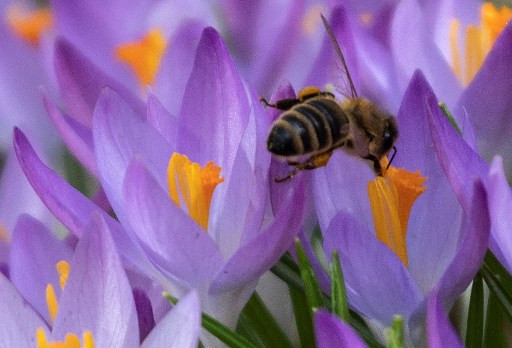Popular Reads
Top Results
Can't find what you're looking for?
View all search resultsPopular Reads
Top Results
Can't find what you're looking for?
View all search resultsGerman climate, insect protection laws cross finish line
Germany passed legislation imposing more ambitious climate targets and tougher curbs on pesticides to protect insects.
Change text size
Gift Premium Articles
to Anyone
G
ermany passed legislation on Friday imposing more ambitious climate targets and tougher curbs on pesticides to protect insects, both controversial flagship projects of Chancellor Angela Merkel's government.
In its final session before the summer recess, the upper house of parliament signed off on reforms to Germany's climate protection law to bring the nation's target date for reaching carbon neutrality forward by five years, to 2045.
Germany will also aim to slash CO2 emissions by 65 percent by 2030 compared with 1990 levels, going further than an earlier goal of 55 percent.
The changes were forced by a groundbreaking ruling by Germany's Constitutional Court in April that the 2019 climate law was "insufficient" and placed an unfair burden on younger generations to tackle global warming.
Merkel's cabinet reacted by swiftly drafting more ambitious legislation, ahead of a September 26 general election in which concerns about climate change are expected to be on voters' minds.
But critics including Fridays for Future activists and the opposition Green party say the efforts still don't go far enough.
The "insect protection" law also approved on Friday has likewise been contentious, driving a wedge between different ministries and pitting environmentalists against farmers who say the new rules threaten their livelihoods.
The package of measures includes phasing out the controversial weedkiller glyphosate by January 1, 2024 and banning the use of insecticides and herbicides in certain areas.
It also creates more protected zones, such as bee-friendly meadows, and reduces light pollution at night.
Biologists have long warned that plummeting insect populations damage the ecosystem by disrupting natural food chains and plant pollination.
Tractor protests
The final package of insect protection measures is the result of more than two years of wrangling and a last-ditch compromise giving farmers an additional 65 million euros ($78 million) to help them adapt to the changes, bringing the total to 150 million euros annually.
"By protecting insects today, we are safeguarding the agricultural industry of tomorrow," said Environment Minister Svenja Schulze.
Farmers have repeatedly staged tractor protests against the legislation, fearing the stricter regulations won't allow them to compete with cheaper agriculture products from abroad.
A 2017 study in Germany was one of the first to raise global alarm about the loss of insects.
It found that the biomass of flying insects across German nature reserves had declined by more than 75 percent in 27 years, triggering warnings of an "ecological apocalypse".











